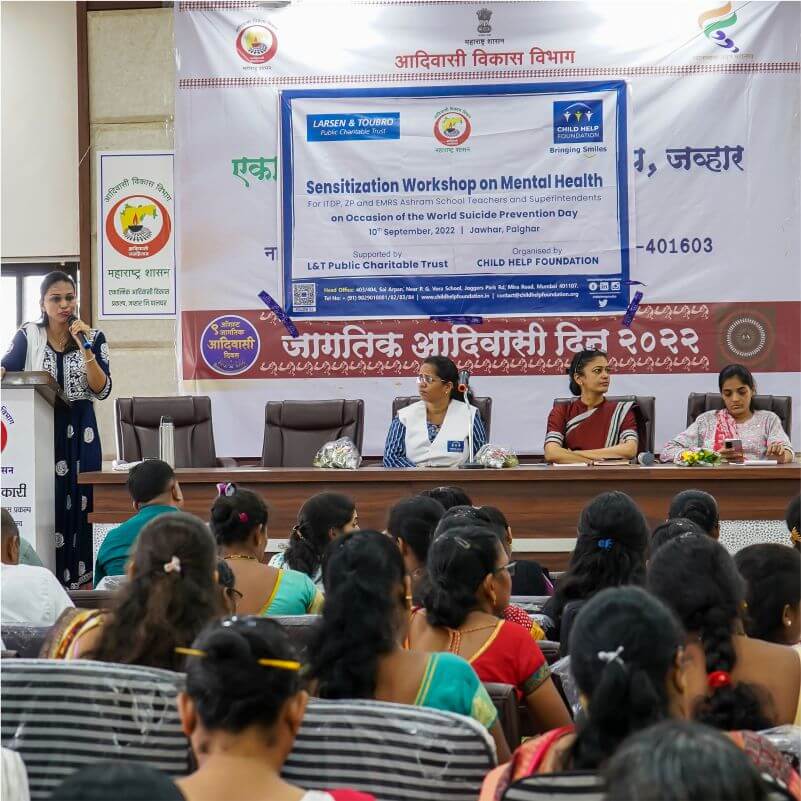Addiction is a complex problem because it causes changes in the body and brain. Beyond the physical toll it takes on the body, its effects reverberate deeply within the realm of mental health. As substances cause changes in the brain structure, they also affect the normal functioning of brain like memory, cognition, decision-making or impulse control over time. The intertwining relationship between addiction and mental health is intricate and exacerbating for each other. While mental health issues, like anxiety, depression or trauma can serve as a root of addiction, substance abuse or behavioural addiction can trigger or worsen mental health disorders.
How Addiction Rewires the Brain?
Excessive drugs and alcohol sends the nervous system into disarray, rewires the brain and causes inflammation, all of which can cause mental illness. The impact of drug abuse and addiction goes deep, especially in the brain's reward centre. Dopamine, a neurotransmitter linked to motivation, pleasure, and reward, undergoes significant changes. Whether it's alcohol, drugs, or illegal substances, they all manipulate this neural pathway. If you or someone close is battling drug or alcohol addiction, you might observe a dramatic shift in priorities. These substances essentially reconfigure brain chemistry, creating an intense drive for continued drug use. As a result, an addicted person becomes more and more busy obtaining the substances and getting high.
The Impact of Addiction on Mental Health

1. Psychological Toll: Addiction can fuel a rollercoaster of emotions. People recovering in addiction centres often experience guilt, shame, and despair, fostering a sense of helplessness and self-loathing.
2. Cognitive Impairment: Substance abuse can impair cognitive functions, affecting decision-making abilities, memory, and overall cognitive processes. This impairment further complicates the ability to manage mental health concerns effectively.
3.Dual Diagnosis: The coexistence of addiction and mental health disorders, known as dual diagnosis, presents a formidable challenge for diagnosis and treatment. Treating one without addressing the other can lead to relapses and prolonged suffering.
4.Health Complications: Apart from the psychological effects of addiction, drug and alcohol abuse can also lead to the following illnesses:
- Cardiovascular diseases
- High Blood Pressure
- Liver or Kidney Damage
- Reduced Immune Function
- Stomach Issues
- Respiratory Problems
- Insomnia
Breaking the Cycle
Acknowledging the signs of addiction and its impact on mental health is the crucial first step towards the healing journey. Erratic behaviour, mood swings or withdrawal from social activities can be a signal of a deeper issue. Seek help from mental health professionals, addiction specialists or your support systems to address both the addiction and mental health concerns. Therapeutic techniques such as cognitive-behavioural therapy (CBT), mindfulness, art therapy, and exercise can also aid in recovery by promoting self-awareness, emotional regulation, and overall well-being.
Dealing with addiction and mental health issues can feel like a tangled web, but it's important to know that healing is possible. Recognizing how addiction and mental health are linked, getting the right help, and having supportive people around you can start you on the path to recovery. Don't hesitate to reach out and take those first steps toward reclaiming your life. You're not alone in this journey!
Overcoming addiction can be a difficult task. It requires constant help and guidance from experts. Child Help Foundation understands the impact of addiction on the mental health and overall well-being of an individual. Along with its crowd-funding partner Filaantro , it frequently organizes awareness sessions on mental health and suicide prevention. It recently conducted an Awareness Session on De-Addiction and Donated Football and Volleyball to the Team of the Gulabigao village as a part of the drive.
Under the activities of Good Health and Well-being, Child Help Foundation has touched the lives of 17,267 individuals and under the Decent Work and Economic Growth and Reduced Equalities , it impacted 1,334 lives.
